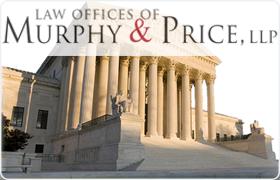Willards Juvenile Law Lawyer, Maryland
Sponsored Law Firm
-
 x
x

Click For More Info:
-
Murphy & Price, LLP
12216 Ocean Gateway Suite 500 Ocean City, Maryland 21842» view mapFederal & State Criminal Defense, DUI/DWI When Cases Are Serious, Look to Us
If you are under criminal investigation, or have been charged with a serious crime, we have lawyers ready and able to prevent loss of your freedom and reputation.
800-871-0830
FREE CONSULTATION
CONTACTRichard Hardy Rudasill
Juvenile Law, Other, Family Law, Commercial Bankruptcy
Status: In Good Standing Licensed: 11 Years
William Seth Mitchell
Juvenile Law, Other, Traffic, Criminal
Status: In Good Standing Licensed: 37 Years
Elizabeth L Ireland
Juvenile Law, Litigation, Insurance, Federal Appellate Practice
Status: In Good Standing Licensed: 37 Years
Robert Emerson Laird
Dispute Resolution, Juvenile Law, Criminal
Status: In Good Standing Licensed: 36 Years

 J. Dennis Murphy Ocean City, MD
J. Dennis Murphy Ocean City, MD About UsMurphy & Price, LLP
About UsMurphy & Price, LLP FAQ'sCriminal Defense
FAQ'sCriminal Defense
